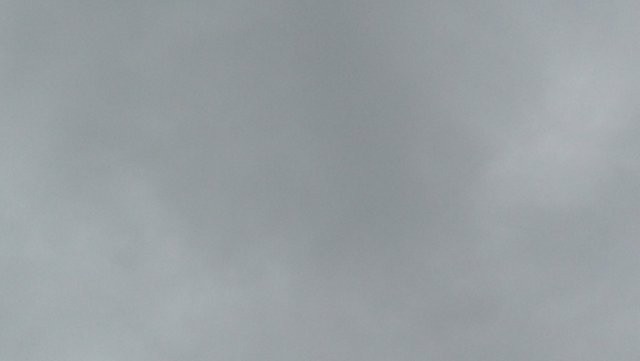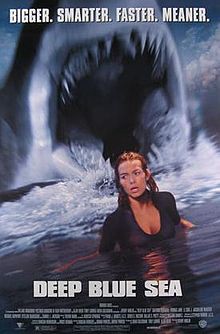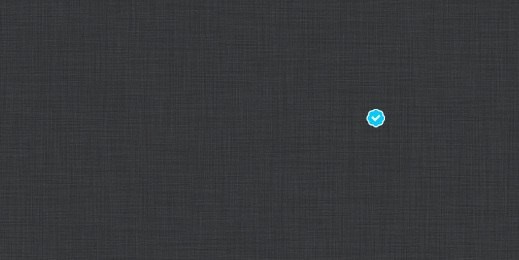New York City, May 8, 2013

★★★ The beginning was straightforwardly undesirable: darkness, rain streaking the windows, thunder, tears over whether it was necessary to wear the raincoat to school. Then came a treacherous pause. Rain stopped, the sky brightened. From the upstairs bank office, the trees and planting beds of Verdi Square joined in a contiguous lushness not so apparent at ground level. On the way out, a few apparently leftover drops were falling. By Columbus Circle on the subway, a new arrival on the platform had water glistening heavily on her raincoat collar. Downtown, umbrellas were up, but it wasn’t necessary. There was barely enough rain to justify a hood. Then in moments the hood was necessary, and in another moment the hood was being drummed on and the sidewalks were splashing and it was time to sprint for a bodega umbrella. People hung back in the doorway, as bubbles flowed along the gutters and water sluiced down the side of a white delivery truck. And then, toward day’s end, there was light like clear syrup and clouds as white as new stationery, with fresh air blowing. It could have served as an apology, if the sleeves of the jacket hadn’t still been damp. That was no reason not to open a window, nor to open the door and get everyone out into it.
Australia Offers Rest Of World Brief Chuckle
“Investigations were under way yesterday into who lobbed Vegemite sandwiches at Australian Prime Minister Julia Gillard as she toured a Queensland school.”
Mr. Muthaf***in' eXquire, "Nightfall At The Thames"
Here’s the new video from one of our favorite young artists, Mr. Muthafuckin’ eXquire. In it, the Brooklyn rapper raps two new songs, “Noble Drew Ali” and “The Cauldron.” I don’t know why he called the video “Nightfall at the Thames.” But then, I went to school in New London, Connecticut, and there’s a river there called the Thames. But it’s pronounced with the “Th” sound like “the,” and “ames” like it rhymes with “James.” So who knows why anyone does anything the way they do it? Not me.
Let's Give Robots Another Reason To Despise Us
“Japanese company CrazyLabo teamed up with Kitakyushu National College of Technology to build a robot that looks like a bulldog… The dog robot sniffs your feet, generating one of four responses depending on how bad the odor. If it’s particularly bad, the robot loses consciousness. If your feet smell okay, the robot will nuzzle up to you.”
Maybe It Won't Be The Machines That Kill Us After All

“Human astrocytes certainly inspired the mice. Their neurons did indeed build stronger synapses. (Perhaps this was because human astrocytes signal three times faster than mouse astrocytes do.) Mouse learning sharpened, too. On the first try, for instance, altered mice perceived the connection between a noise and an electric shock (a standard learning test in mouse research). Normal mice need a few repetitions to get the idea. Memories of the doctored mice were better too: they remembered mazes, object locations, and the shock lessons longer.”
— Scientists at the University of Rochester Medical Center implanted human brain cells into the brains of baby mice and the mice turned out smarter than other mice. I am continually amazed at how few scientists seem to have seen Deep Bue Sea.
Depression Continued
Remember “Adventures in Depression”? Well, here’s “Depression Part Two.” Read and share.
British Lady Says American Broads Are A Bunch Of Lightweights
A British woman says her co-genderists on this side of the pond are happier and healthier because they drink less alcohol, which sounds a lot like a challenge to me. Ladies, will you stand up for America?
The Unverified

A few months back, Mike Hayes, who’s a senior reporter at BuzzFeed and who also runs the official BuzzFeed Twitter account, sent around an email to the office. Twitter, he reported, was going to be verifying the whole staff at once. To be eligible, employees just needed to attach their work email addresses to their Twitter accounts.
And so then one day in March, poof. Scores of BuzzFeeders with blue checkboxes on their Twitter profiles. Other companies, like The Verge, followed.
so many buzzfeed writers, verified. heads need to roll over this. verify me @twitter
— max read (@max_read) March 12, 2013
There’s sort of nothing funnier than Twitter verification. Verification is, of course, handy: it’s reassuring for all of us to know that Donald Trump is actually really terrible, and we’re not all mad at some ingenious troll. (Similarly, Bill Clinton, or like… Macy Gray. I guess.) As for the verified, nothing much happens. (Reported Anil Dash: “other than of course gaining membership to an exclusive worldwide Illuminati cabal, there really isn’t any difference in using Twitter when you’re verified.”) It’s a fairly harmless and goofy and even a kinda useful thing. The dark side, of course, is all the sad sacks on Twitter, begging to be verified. (Search @verified for dark times.)
Every mass movement has its quiet shadow, though. Now there is a secret class among us. There are people — we know of several — who are declining the opportunity to be verified (or at least, standing still and not being verified), while people all around them are. It must seem like cicada season for them: blue checkmarks are popping up all around. And, for one reason, or a series of reasons, or something more complicated, they’re sitting it out.
But they’re not, for one thing, an anti-verification brigade.
“I think it’s actually very important — I don’t write stories based on things I see on Twitter sometimes because the tweeter is NOT verified,” The Verge senior features editor Laura June typed to me over IM. “So it’s a good thing, especially for journalists.”
Fair point: what does it mean when just any old Twitter account like you and me relays some gossip?
Lana Del Rey ‘is now officially the face’ of some sort of Versace, according to an unverified fan girl Twitter account. bit.ly/RujLw8
— The Cut (@TheCut) November 1, 2012
Makes sense — even as Laura June herself decided not to join her coworkers at The Verge in verification. “For me, it’s not a big deal, though,” she wrote. “I don’t have a lot of people running around impersonating me or anything. So I didn’t think about it really, but for the past few months I have been referring to my Twitter as my Unofficial Twitter because that seemed funny to me: that I would be the worst, least reliable source of information about myself. I think I have a basic streak of rebelliousness in me that makes me not want to do things exactly how everyone wants or expects me to. The other thing is that Twitter is pretty fun for me, and I try not to take it seriously. It’s not an accurate reflection of my minute to minute existence, so, in a way, it would be a big lie to verify it.”
* * *
As with any status system, we like to tease people about verification, about them becoming fancy and too good for the rest of us, even though we know this kind of status is just goofy.
Twitter, if you give @jonahnro that blue check mark, there will be just no living with him. KEEP HIM UNVERIFIED, I SAY.
— John Podhoretz (@jpodhoretz) October 22, 2012
It’s a funny competitive game to play on the Internet, though. As long as you’re ironic about it. Or… somewhat ironic?
he also blocked me for my ‘tar MT @mat True story, @jwherrman, I asked @dickc to verify me and he literally (literally!) laughed in my face.
— John Herrman (@jwherrman) February 22, 2013
Some offices are getting verified piecemeal. For instance, a review of the masthead of New York magazine indicates that many, though not all, of the digital people are being verified, while no employees on the print side are.
I wrote to Twitter’s public relations team to ask: “Why these publications first?” And also: “Why do this at all?” I didn’t hear back, which seems reasonable. It’s pretty silly, after all.
As well, a few people I reached out to about intentionally not being verified either didn’t want to talk or didn’t reply, which I think is appropriate of them. Also, one person I interviewed later retracted her comments on the issue of workplace verification: she was too anxious to even be quoted anonymously on the subject, for fear of giving offense at work.
So clearly something runs deep about all this. For me, the idea of verification taps deep issues about identity, about joining and belonging, and about status. I’d like to think I’d resist the allure of verification. What would be the point for me, beyond vanity? I have no impersonators. My Twitter does nothing of any importance; it’s for jokes and being dumb. But could I resist?
* * *
BuzzFeed senior editor Katie Notopoulos was one of the few who sat out the verification at BuzzFeed. Katie is the author of the truly wonderful The Least Popular Verified Twitter Accounts post, from last August, which included “the official Twitter account for American Citizen Services of the U.S. Embassy in Tirana, Albania.” (Now up to 225 followers!)
Katie gave three amazing reasons. Before presenting them, I wanted to preface by saying that even talking about Verification Denialism can violate its spirit, and I’m exceedingly grateful she was willing to discuss this in public for the first time at all. (“You should not crow about your humility,” she emailed to say, and also: “It seems like it might come across as sour grapes to be talking about it too much.”)
So, with that in mind, her three rationales:
1. “I didn’t want to lose my street cred with the Twitter riff raff. I imagine verification would be like trying to go back to the local watering hole on winter furlough from Harvard in the miner’s town and everyone sneerily calling you ‘college boy.’”
2. “The blue check mark might interfere with the light trolling I love so much. It might be hard to fly under the radar when ironically retweeting teens. Sometimes, in dark moments, I search out and respond to complaints directed at the Chipotle Twitter account and tell the customers they’re ungrateful and should stop whining. I think appearing verified might complicate this.”
And my favorite:
3. “There are few moments where we have the opportunity to win a battle against our own vanity in a medium that encourages constant self-promotion. The restraint of not using a real photo for an avatar even though I am EXCEEDINGLY BEAUTIFUL is a similar one of my monastic vows. To deny the indulgence of verification is a small gesture which holds religious meaning to me. We should not ask to be rewarded for our good tweets in this life; we must have faith that God has boundless favs and RTs awaiting us in Heaven.”
I like to believe that too. And I love the idea that self-denial can bring a freedom of behavior on the Internet.
Katie also tied it to authenticity. “You know in the trailer for the Beyonce documentary where she describes her existential crisis as, ‘how do I stay current? How do I stay soulful?’ I’m pretty much exactly like Beyonce.”
In my mind, there’s a secret club of these people who have turned verification and status inside out, and for whatever reason have sat idly by why their coworkers get their checkmarks. They have a secret password and a secret chatroom, and they get together to talk about more noble (or more hilarious!) things than the rest of us do. It’s surely not true, but for whatever reason, it makes me feel all cozy and happy to think about.
"Dogs In Pantyhose" Latest Example Of Just How Fucking Weird The World Is Now
“Pictures of dogs sporting pantyhose are now all over the Internet and they’ve been gaining a lot of interest.”
[SPONSORED] How Modern Nomads Use Their Ultrabooks™
by Awl Sponsors
“Who says that you have to live in only one city? Freelancing has its benefits, namely that you can live anywhere you choose and work remotely. With a flexible job and a high power, portable computing device (read: laptop) you can hike in San Francisco, hit New York’s bars, and enjoy Chicago’s summer festivals and Miami’s beaches all in the same month without even having to quit your job. If you can deal with the time changes and long distance plane rides, what’s to stop you from working in the South of France for the summer? Jay Z does it, you can too. Or when you’re feeling really nostalgic (and patient) sleep in your childhood bedroom and hang out with your family. A computer like Sony’s Ultrabook™ Vaio Duo 11 makes the modern nomad lifestyle easy. Here’s how to use your trusty laptop to get the job done.”
